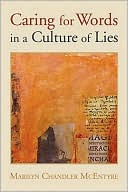The Living Dead
Leo Tolstoy’s The Death of Ivan Ilyich and Franz Kafka’s The Metamorphosis
[Literary Criticism paper written for a college Western Literature class]
Ecclesiastes 6:12 asks, “For who knows what is good for a man in life, during the few and meaningless days he passes through like a shadow? Who can tell him what will happen under the sun after he is gone?” This verse sums up the heart of two famous novels of Western Literature: The Death of Ivan Ilyich by Leo Tolstoy and The Metamorphosis by Franz Kafka. Both deal with the inescapability of man’s mortality. And, reiterating the philosopher in Ecclesiastes, both ask what it means to be truly alive. Yet, while Kafka’s central character is doomed to be forever one of the living dead (a man who only attains to a shadow-like existence), Tolstoy offers his readers a glimmer of hope and a way by which they can leave an imprint on the world they leave behind.
Kafka’s novel deals with an unfortunate businessman (Gregor Samsa) who wakes up one morning to discover he has been transformed into an enormous insect, while Tolstoy’s novel centers on another businessman (Ivan Ilyich) who discovers that a minor injury has turned life-threatening and he has only a short time to live. The plots might seem extremely different at first, but this is actually where the similarities begin. Both have businessman as their main characters and both businessman are relatively satisfied with their jobs and their lives – at least they have found a way to put on the façade of satisfaction. Their very different injuries are similar in the sense that they force them to give up these jobs, to become alienated from their families, and face the question of their existence head on.
Interestingly, Samsa is not alarmed by his metamorphosis into an insect. Instead, he takes the transformation in stride, trying to figure out how to get out of bed and hurry as quickly as he can so that he can make his train. This is similar to Ilyich who ignores his injury for a while and refuses to believe that he is dying. Both Tolstoy and Kafka agree then that man often tries to avoid the truth of his mortality. Yet it is with each man’s response to his injury that the worldviews of Tolstoy and Kafka begin to diverge. Although they agree that man will fight to stay alive, they portray the conclusion of this struggle very differently.
Samsa is caught in a battle between the truth of his insect body and his still human soul. The insect desires to crawl along ceilings and eat rotten food, but his human soul desires beauty and, most of all, love. This is brought to a climax in the scene where Samsa is drawn to the music of his sister’s violin. Insects have no appreciation for art, but Gregor does. However, his family reacts with horror towards him. His sister denies his humanity, declaring, “You have to try to stop thinking this is Gregor. Our true misfortune is that we’ve believed it for so long. But how can it be Gregor?” With his family’s rejection, Samsa dies alone and his body is disposed of with the trash. Thus, Kafka reveals that man’s struggle to be more than an insect is utterly futile.
Contrast this with Tolstoy’s Ilyich. As Ilyich realizes that he is dying, he too longs for the love and sympathy of his family. Yet, Ivan has never shown such kindness towards anyone in his life (throughout the book he is continually portrayed as a particularly selfish person) – how can he expect such kindness now? It is this despair that leads him to contemplate whether he has “lived as [he] should have.” This is one thing Samsa never does, although if he had he probably would have reacted similarly with Ilyich – refusing to admit (as Ilyich does at first) that his life had been a lie, mere formality and convention. Yet, this is exactly what Ilyich comes to realize. Tolstoy noted, “As a student he had done things which, at the time, seemed to him extremely vile and made him feel disgusted with himself; but later, seeing that people of high standing had no qualms about doing these things, he was not quite able to consider them good but managed to dismiss them and not feel the least perturbed when he recalled them.” Indeed, Ivan has sacrificed his own conscious for earthly treasures – as Matthew 16: 26 warns, “What good will it be for a man if he gains the whole world, yet forfeits his soul?” To a certain extent, this is exactly what Samsa has done too – forfeiting his soul and becoming an insect in the process.
But while Samsa’s life ends in tragedy, Ilyich comes to the realization that he can reverse what his life has become even in the very seconds before he dies. When he realizes that his life has not been a "good one," he stops screaming and stops resisting death. He sees his family around him and suddenly feels truly sorry for them. No longer is he grieving for himself, but for them. No longer does he fear death for “there was no death.” As he asks God to “forgive” him, Ivan is reborn and able to die in peace. He is already alive in Christ.
Samsa, however, cannot find such redemption, even though it could be argued that he deserved the redemption more than Ilyich. While he had lost his identity to the business world, he still cared for those around him, even if he was unable to spend time with them. Throughout the story his selfless acts are constantly appearing, contrasted against his family’s selfishness. After being transformed, he continues to sympathize with them. Indeed, he hides himself under a sofa and covers himself with a sheet so that they would not have to see his hideous form.
In Tolstoy’s world, however, even these acts of Samsa’s would have fallen short of earning such redemption. The message of The Death of Ivan Ilyich is clear – no man deserves redemption. Redemption is not earned, but is a gift of God. Indeed, as a foil to Ivan is Gerasim, a servant boy who is not afraid of death. He is the only character in the story that is selfless and truly shows compassion for others. As Gerasim cares for the dying Ilyich, Tolstoy writes, “By this [Gerasim] meant that he did not find his work a burden because he was doing it for a dying man, and he hoped that someone would do the same for him when his time came.” Ivan, however, cannot look back on any moments of servitude in his life that might justify him a bit of kindness. And, yet, Gerasim is willing to care for him even though Ivan does not deserve it. This is a true reflection of Christ.
In Kafka’s world there is no such agent of redemption for Samsa. His sister at first cares for him, but gradually she grows to abhor him and is the first to deny his humanity. But truly there is no other answer for the people who hold to an atheistic worldview. If there is nothing after death, how can there be any meaning in life? What gives man worth if he is but dust and a passing shadow?
Thus, the similarities between The Death of Ivan Ilyich and The Metamorphosis are similar in that they are the representation of everyman, but their differences are those of two contrasting worldviews. Those who deny God can have no existence but that of an insect. They are alienated from the world and, especially, from their Maker. Death will be the most horrifying for them (Samsa’s body is treated as a piece of garbage). Yet, those who accept Christ, as Ilyich did, will be able to experience what love truly is and will no longer be one of the living dead, but truly alive. Their existence may be short, but it will have new meaning, especially in the eyes of God. Indeed, man is not an insect, but made in the image of his Creator.
Labels: book reviews, bookish musings, literary criticism
Posted by Nicole Bianchi at 2:32 PM
![]()




 This is life seen through the eyes of a writer. A blog that critically examines literature, music, and film. NB, initials which coincidently coinside with the Latin words "nota bene" (mark well), belong to the blog poster, a bibliophile who likes to haunt libraries and book stores, talk about all things bookish, and ramble at any length on things regarding literature. Many of the articles posted here were written as essays for high school and college.
This is life seen through the eyes of a writer. A blog that critically examines literature, music, and film. NB, initials which coincidently coinside with the Latin words "nota bene" (mark well), belong to the blog poster, a bibliophile who likes to haunt libraries and book stores, talk about all things bookish, and ramble at any length on things regarding literature. Many of the articles posted here were written as essays for high school and college.






1 Comments:
Wonderful article. Thank you.
3/19/2012 8:00 PM
Post a Comment
<< Home